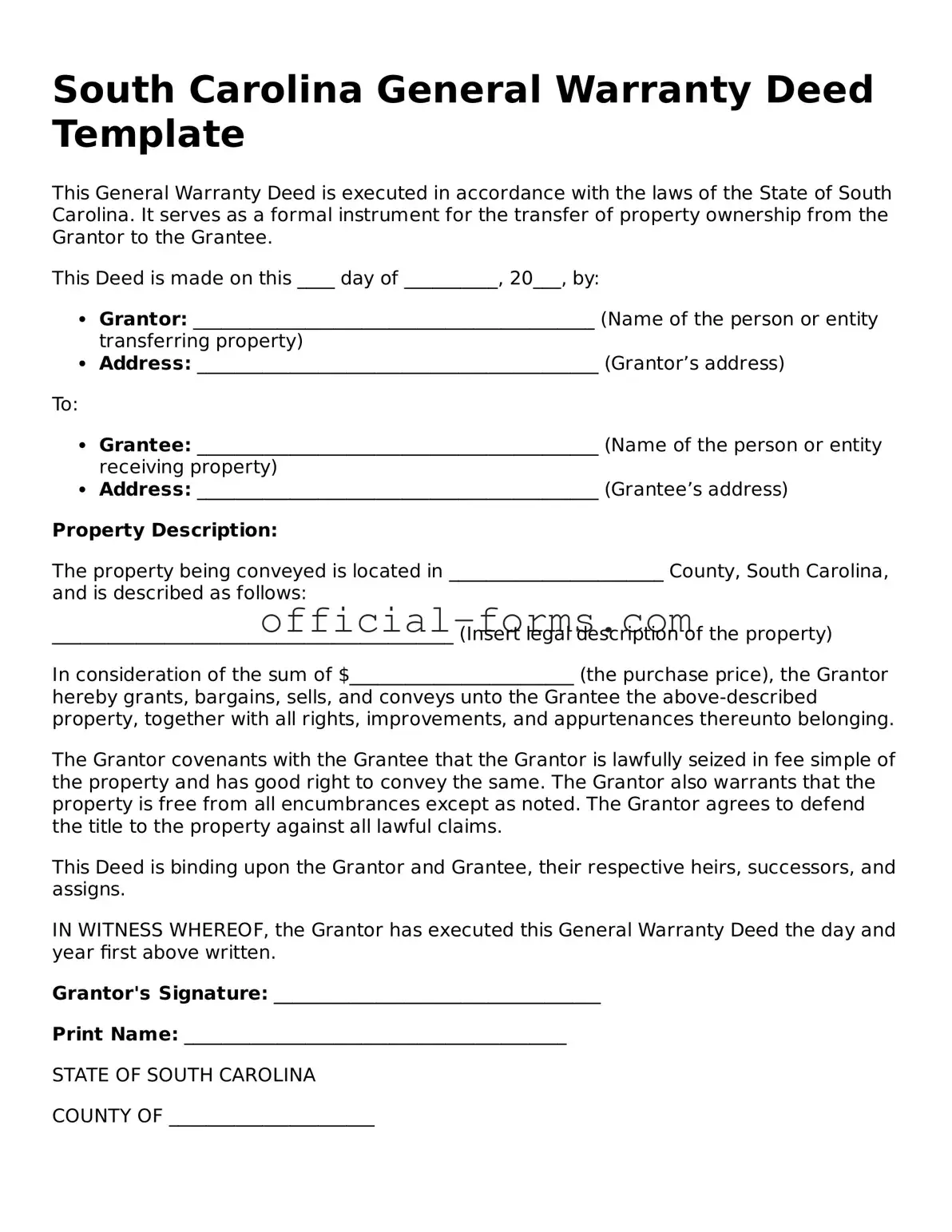Completing a South Carolina Deed form requires careful attention to detail. Many individuals make mistakes that can lead to delays or complications in property transfer. Here are ten common errors to avoid.
First, one frequent mistake is not including the correct legal description of the property. This description should be precise and match the information in the county's property records. Omitting this detail or using vague language can create confusion and potential legal issues.
Another common error involves the names of the parties involved. It is essential to ensure that the names of the grantor and grantee are spelled correctly and match their legal identification documents. Any discrepancies can invalidate the deed.
Many people forget to include the date of execution. This date is crucial as it marks when the deed is signed and can affect the validity of the transfer. Always double-check that the date is clearly written and accurate.
Failing to have the deed notarized is another mistake that can lead to complications. South Carolina law requires that the deed be signed in the presence of a notary public. Without this step, the deed may not be considered valid.
Additionally, individuals sometimes overlook the need for witnesses. In South Carolina, a deed must be witnessed by at least one person. Not having a witness can result in the deed being challenged later.
Another error is neglecting to pay the required transfer tax. This tax is based on the sale price of the property and must be paid at the time of recording. Failing to include this payment can delay the processing of the deed.
Some individuals use outdated forms or templates. Laws and requirements can change, so it is vital to use the most current version of the South Carolina Deed form. Using an outdated form can lead to non-compliance with state regulations.
Another mistake is not providing sufficient information regarding the property’s boundaries. Clear descriptions help prevent disputes with neighbors and ensure that the property is accurately defined.
People often forget to check for any liens or encumbrances on the property before transferring ownership. It is essential to ensure that the property is free of any legal claims that could affect the new owner.
Lastly, failing to file the deed promptly can cause issues. After signing and notarizing, the deed should be filed with the appropriate county office without delay. Delays can lead to complications in establishing ownership.
By avoiding these common mistakes, individuals can help ensure a smooth and successful property transfer process in South Carolina.

